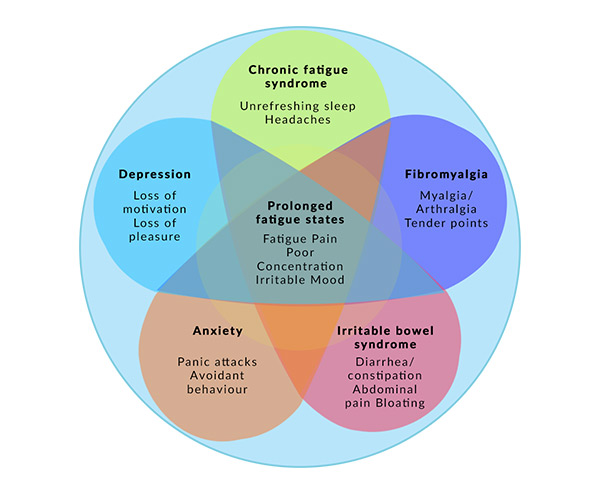Chronic Fatigue Syndrome/ Myalgic Encephalopathy

Chronic Fatigue Syndrome/ Myalgic Encephalopathy (CFS/ME) is a disease that causes you to become so fatigued (tired) you can't perform normal daily tasks. This illness strikes more people in the United States than multiple sclerosis, lupus, lung cancer or ovarian cancer.
The earlier a person with CFS/ME receives medical treatment, the greater the likelihood that the illness will resolve. Equally important, about 40% of people in the general population who report symptoms of CFS/ME have a serious, treatable, previously unrecognized medical or psychiatric condition (such as diabetes, thyroid disease, substance abuse). CFS/ME is a serious illness and poses a dilemma for patients, their families, and health care providers.

Researchers continue to explore possible causes and risk factors for CFS/ME. Many questions remain, but there are some characteristics that may help indicate who most at risk is for CFS/ME:
- CFS/ME occurs four times more frequently in women than in men, although people of either gender can develop the disease.
- The illness occurs most often in people in their 40s and 50s, but people of all ages can get CFS/ME.
- CFS/ME is less common in children than in adults. Studies suggest that CFS/ME is more prevalent in adolescents than in younger children.
- CFS/ME occurs in all ethnic and racial groups, and in countries around the world. Research indicates that CFS/ME is at least as common among African Americans and Hispanics as it is among Caucasians.
- People of all income levels can develop CFS/ME.
- CFS/ME is sometimes seen in members of the same family, but there's no evidence that it's contagious. Instead, there may be a familial or genetic link. Further research is needed to explore this.
